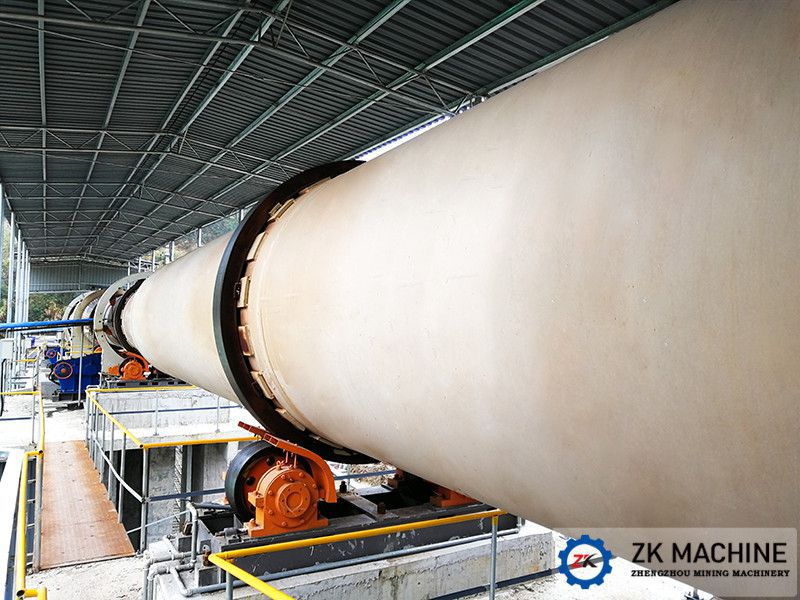Principle and Maintenance of Rotary Kiln Tyre
Date:2020-12-23 16:54:33
Author:admin
Views:
171
The rotary kiln tyre is also called the rolling ring. Its function is to transfer all the gravity of the cylinder (including the gravity of refractory bricks, internal devices and materials) to the supporting roller, and enable the cylinder to rotate smoothly on the supporting roller Therefore, the rotary kiln tyre have sufficient strength and durability. At the same time, the tyre is a part that strengthens the radial rigidity of the cylinder and should have sufficient rigidity. According to the different cross-sectional shapes of rotary kiln tires, it can be divided into the following types:
1. Rectangular tyre of rotary kiln: its cross-section is solid rectangle, as shown in Figure (A), with simple shape and easy manufacturing quality. Generally, the service life is longer than that of the box-shaped wheel belt, and it is widely used; but its rigidity is relatively small, the material utilization is unreasonable, and the heat dissipation condition is poor.
2. Rotary kiln box-shaped tyre: its section is hollow box-shaped, with good thermal conditions and high rigidity, making it difficult to use materials reasonably. The integrated structure of the tire belt and the cylinder body can avoid the "Necking Temperature Stress" between the tire belt and the cylinder body. It also makes the tires give full play to the reinforcement of the simplified form, and at the same time makes the materials of the tires reasonable use, simplifies manufacturing and installation work, and is easy to operate. The installation method of the tyre belt on the cylinder usually adopts the looper type. The tyre belt is not directly installed on the simplified section, but on the backing plate, so that a natural ventilation channel is formed between the cylinder and the tyre belt. On the one hand, heat dissipation is strengthened, and on the other hand, the heat conduction from the kiln body to the tyre is reduced, so that the temperature difference between the inner and outer edges of the tyre is smaller. When the thermal system in the kiln changes, the temperature difference does not change much, thereby reducing the temperature stress on the tire belt. When the kiln is running, the tyre and the simplified slide will slide relative to each other in the axial direction, causing wear. At this time, the backing plate plays the role of protecting the cylinder. On both sides of the tire belt, baffles or retaining rings are used to limit the movement of the tire belt along the axial direction of the cylinder.
Due to the difference in thermal expansion rate and rigidity between the kiln body and the tyre of the rotary kiln, the inner warp of the tyre is designed to be larger than the outer and outer diameter of the kiln body (including backing plate), so that the kiln body (backing plate) and the misalignment of the tires is called "Rolling Slip".
The range of normal rolling displacement and misalignment is only limited to the difference between the diameter of the kiln body (including the backing plate) and the tire belt, and occurs in a certain proportion. If the lubrication between the tire belt and the kiln body (including the backing plate) is improper or not lubricated, abnormal sliding displacement will occur, and the contact surface will seize or slip. These phenomena will cause abnormal friction between the backing plate and the tyre, the kiln body will shake when rotating, and it will induce the damage and fall of the refractory bricks in the kiln body, which will cause accidental shutdown of the kiln for maintenance and production shutdown losses.
Therefore, reliable lubrication must be made between the tyre and the backing plate and between the tyre and the stopper in order to ensure smooth slip and long-term maintenance of the gap value in a reasonable range. Usually, special oil products with high temperature resistance and graphite are used. Special equipment is used to inject the oil products between the gaps between the tires and the backing plate. Under high-temperature operating environments, the low-boiling substances in the oil evaporate or even burn, leaving the lower part of graphite or other materials plays a lubricating effect on the inner surface of the tire.

